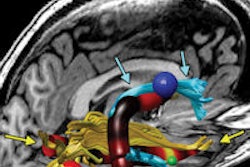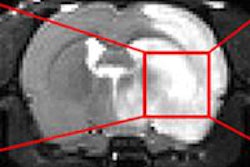Monday, December 1 | 10:50 a.m.-11:00 a.m. | SSC09-03 | Room N229
Using diffusion-tensor MRI (DTI-MRI), researchers from the University of Pittsburgh Medical Center found unique white-matter injury patterns in patients with mild traumatic brain injury who exhibited depression, anger, and other neuropsychiatric symptoms.Led by Dr. Joseph Delic from the department of radiology, the group performed DTI scans and neurocognitive testing on 38 patients with irritability, 32 with depression, 18 with anxiety, and eight with anger/aggression issues. The study also enrolled a control group of 37 individuals with none of these symptoms.
DTI-MRI generated fractional anisotropy maps, which then were correlated with symptom severity, neurocognitive test scores, and time to recovery.
The mild traumatic brain injury patients with depression had decreased fractional anisotropy values in the superior longitudinal fasciculus, white matter around the nucleus accumbens, and anterior limb of the internal capsule, compared with the controls, the researchers found. Those with anxiety had diminished fractional anisotropy values in the posterior cingulate gyrus and cerebellum. The subjects with anger/aggression issues had decreased fractional anisotropy values in the inferior longitudinal fasciculus of the visual limbic pathway.
Patients with irritability were the exception: They did not show a significant decrease in fractional anisotropy compared with the control subjects.
Abnormal patterns in the accumbens region of the brain and its association with depression after mild traumatic brain injury "may suggest an underlying dysfunctional reward circuit," Delic and colleagues speculated. "Similarly, injury to the cerebellum in post-traumatic anxiety correlates well with known abnormalities seen in this region in anxiety patients in the population at large."




















